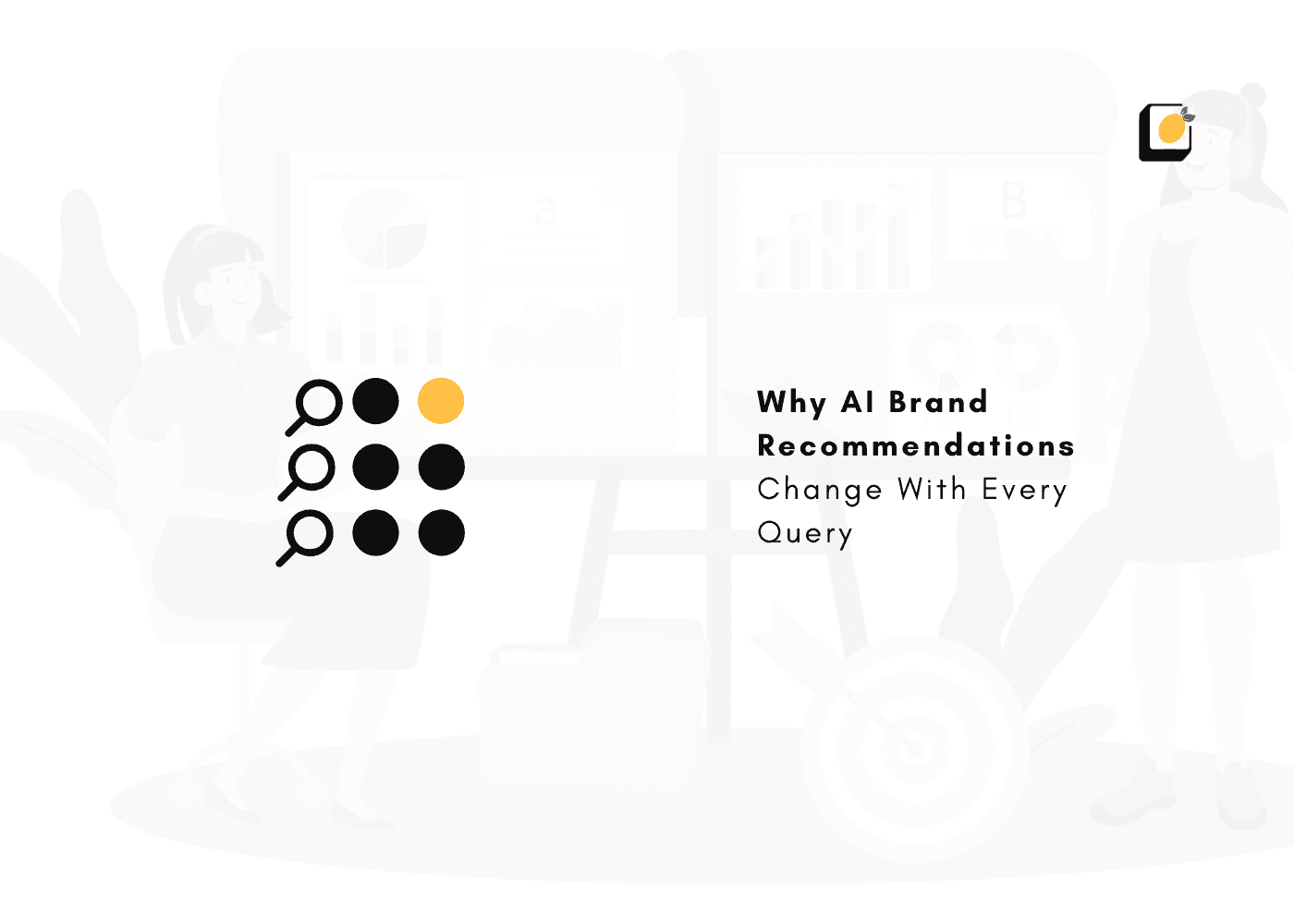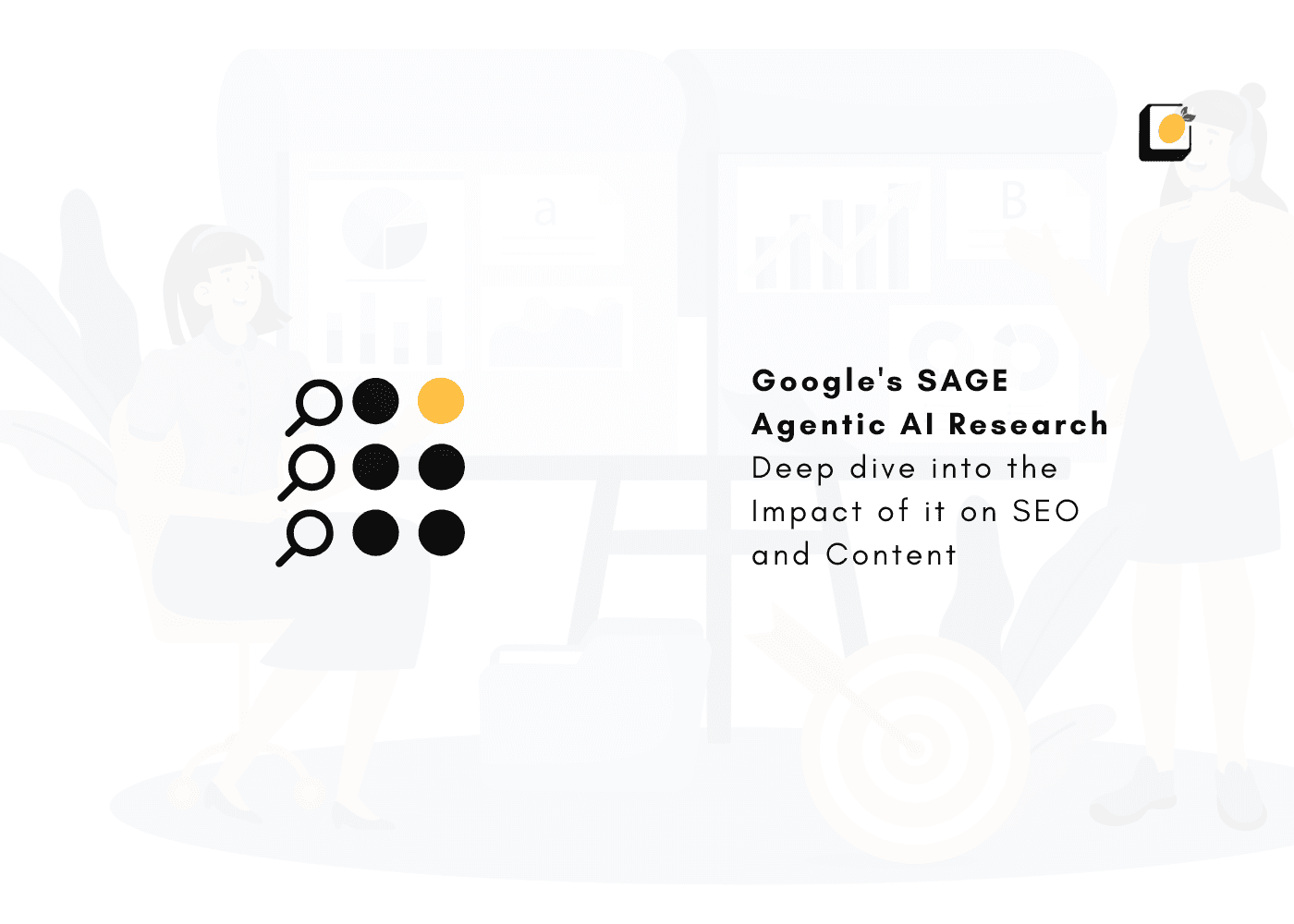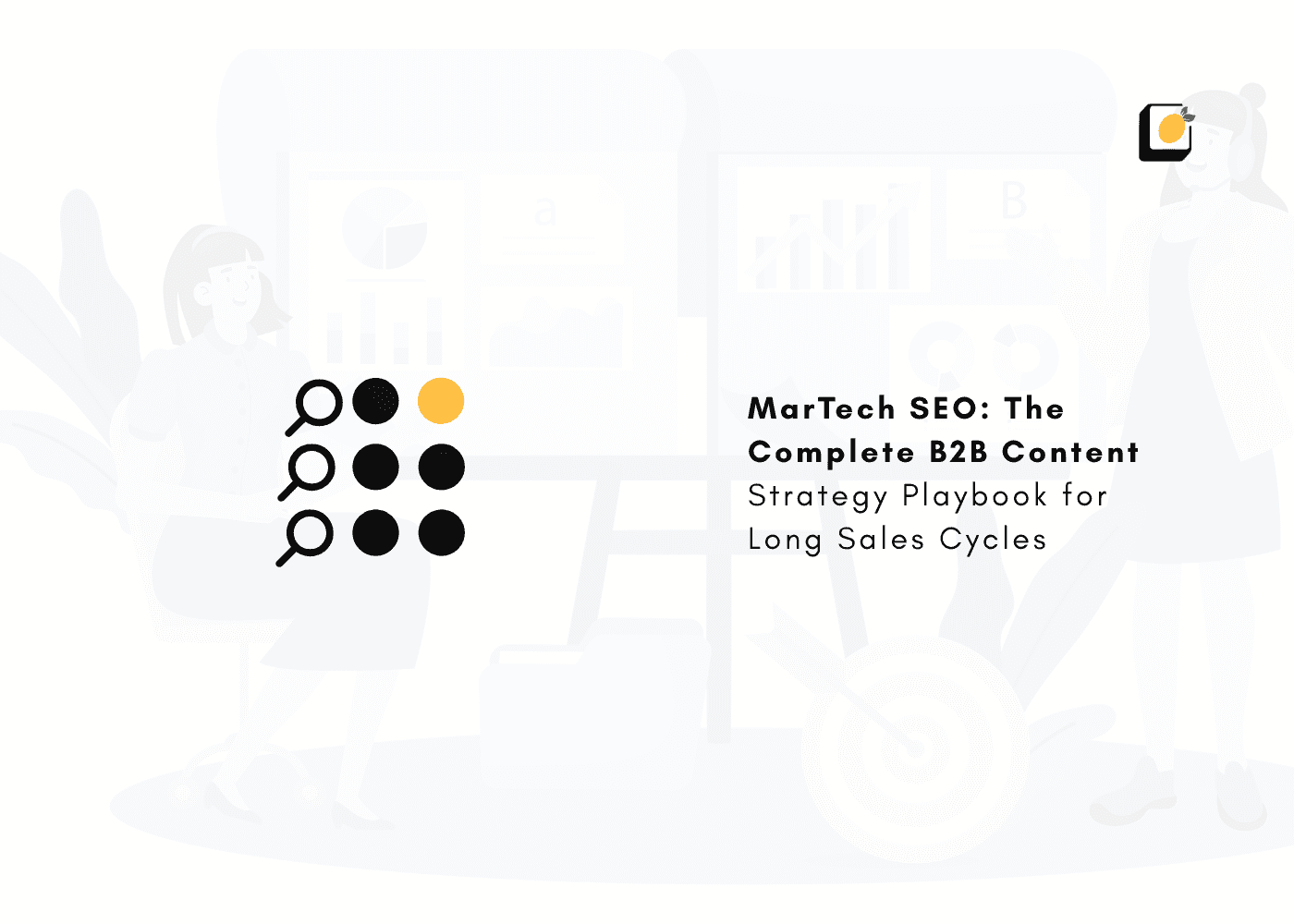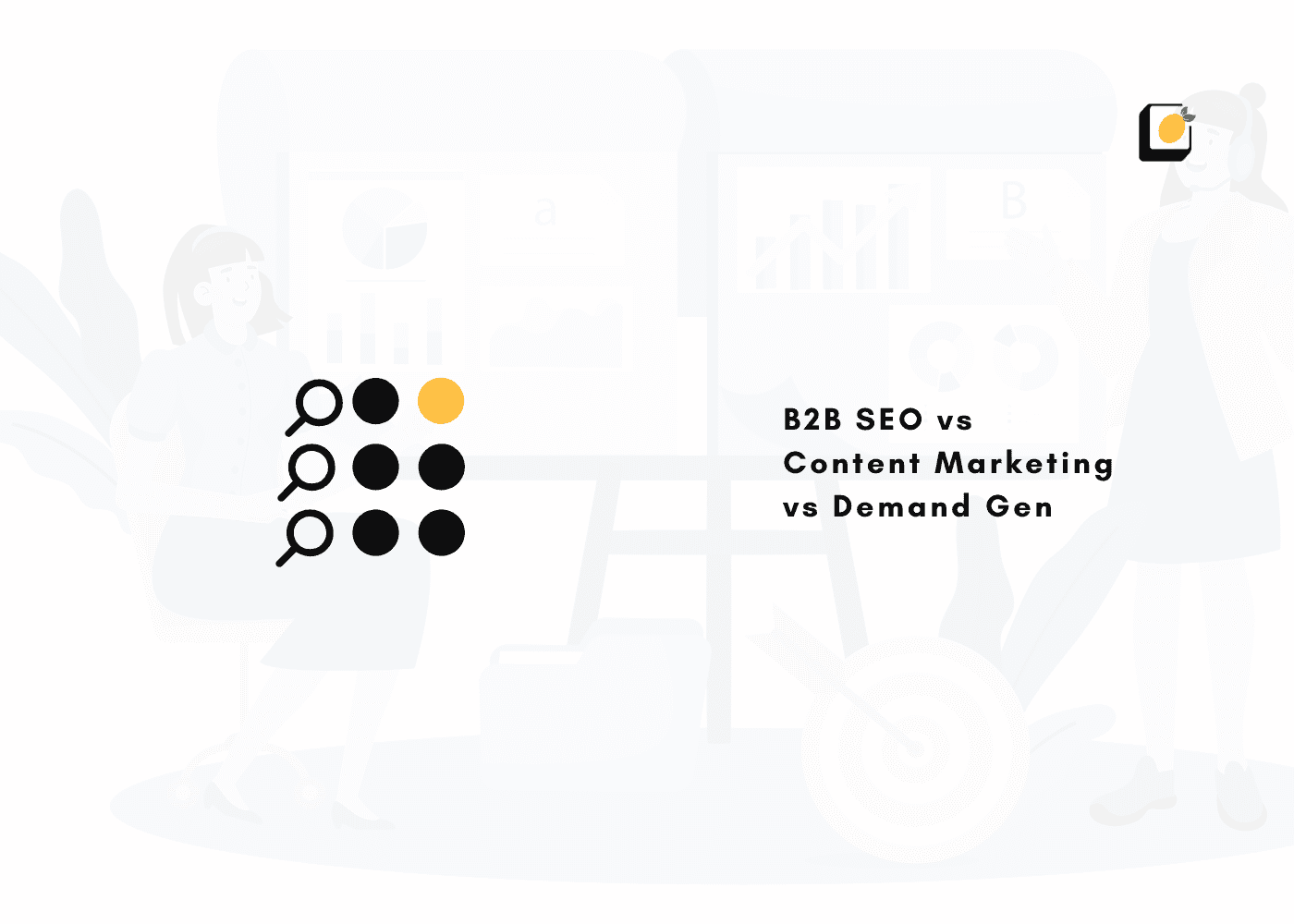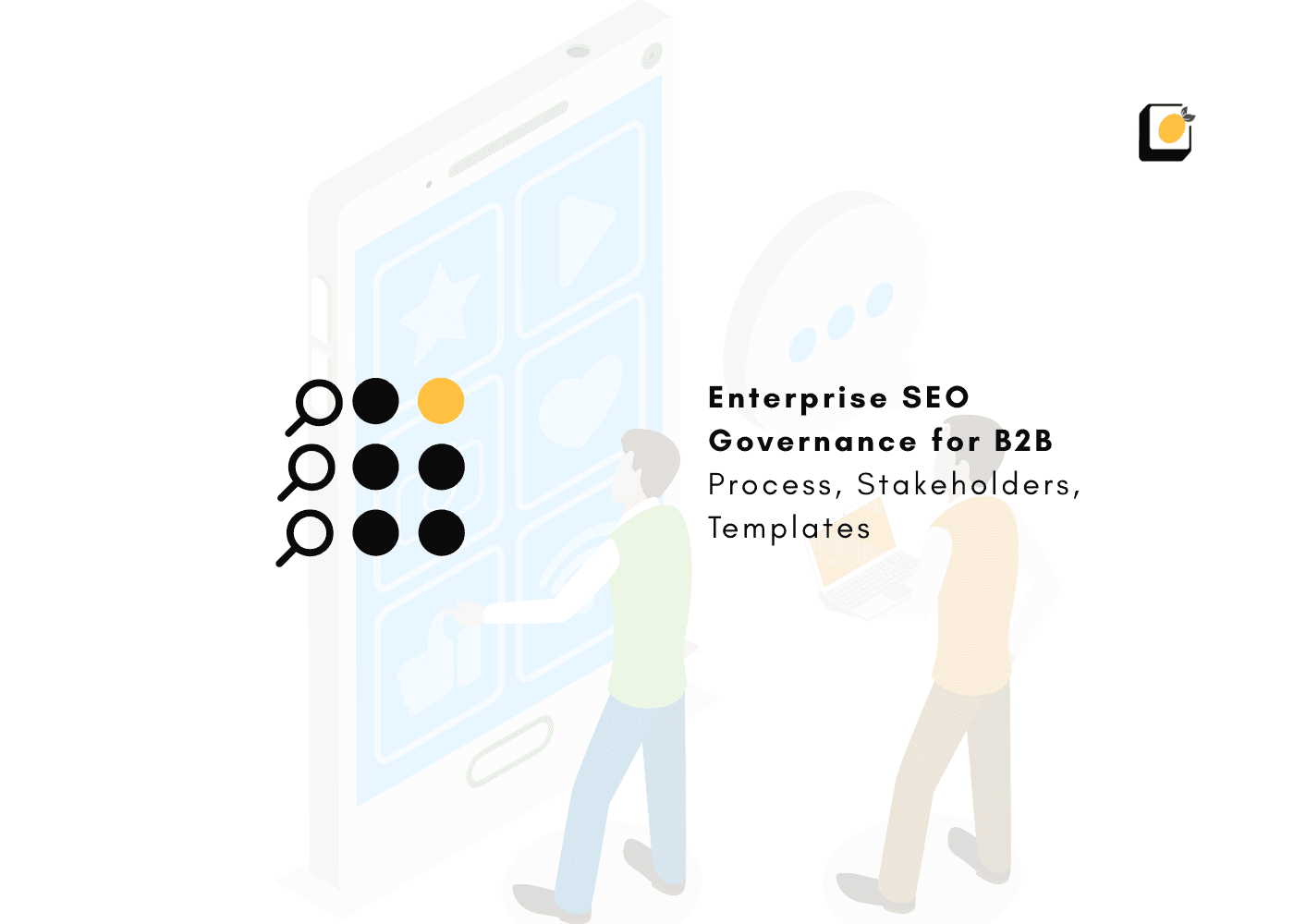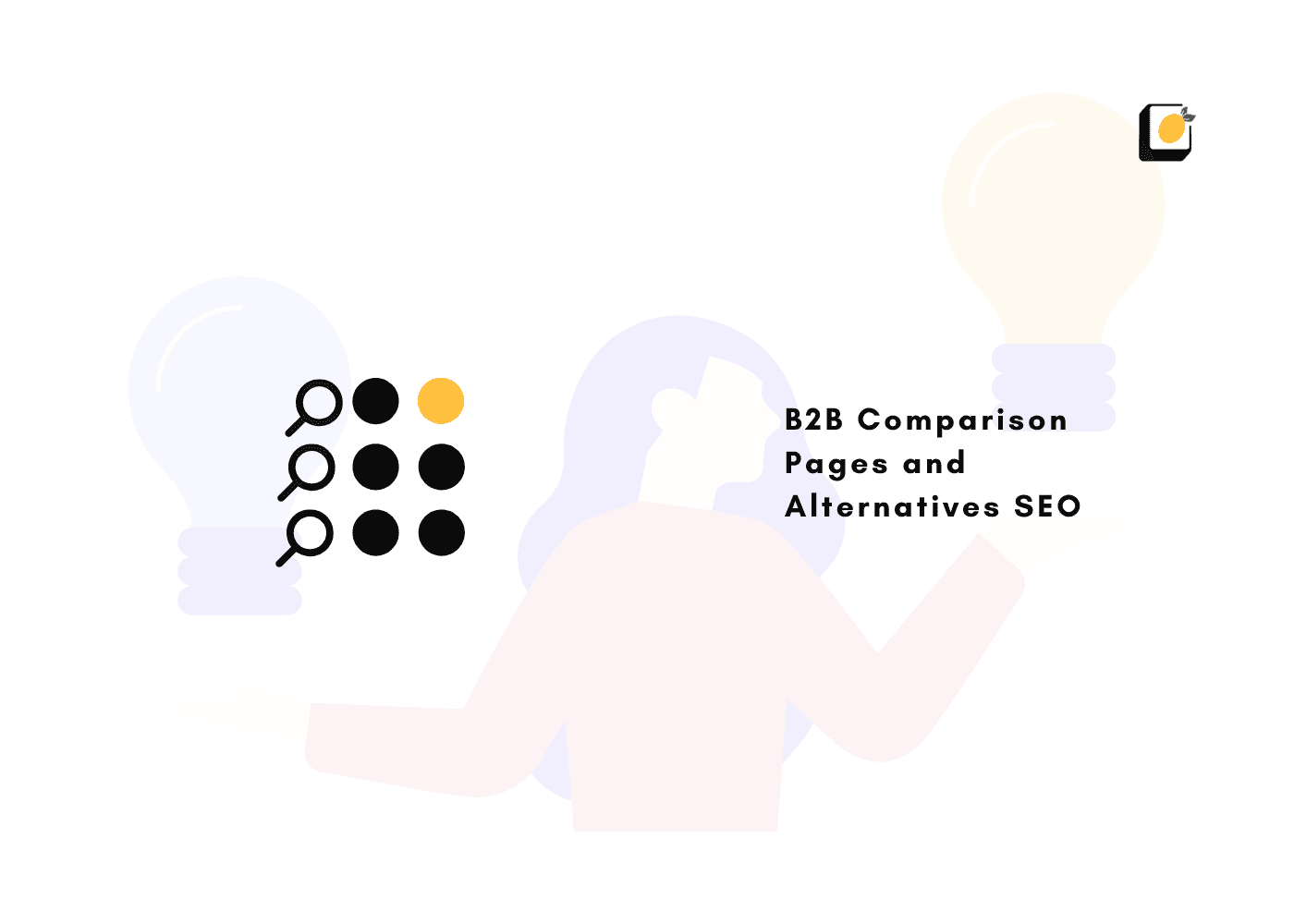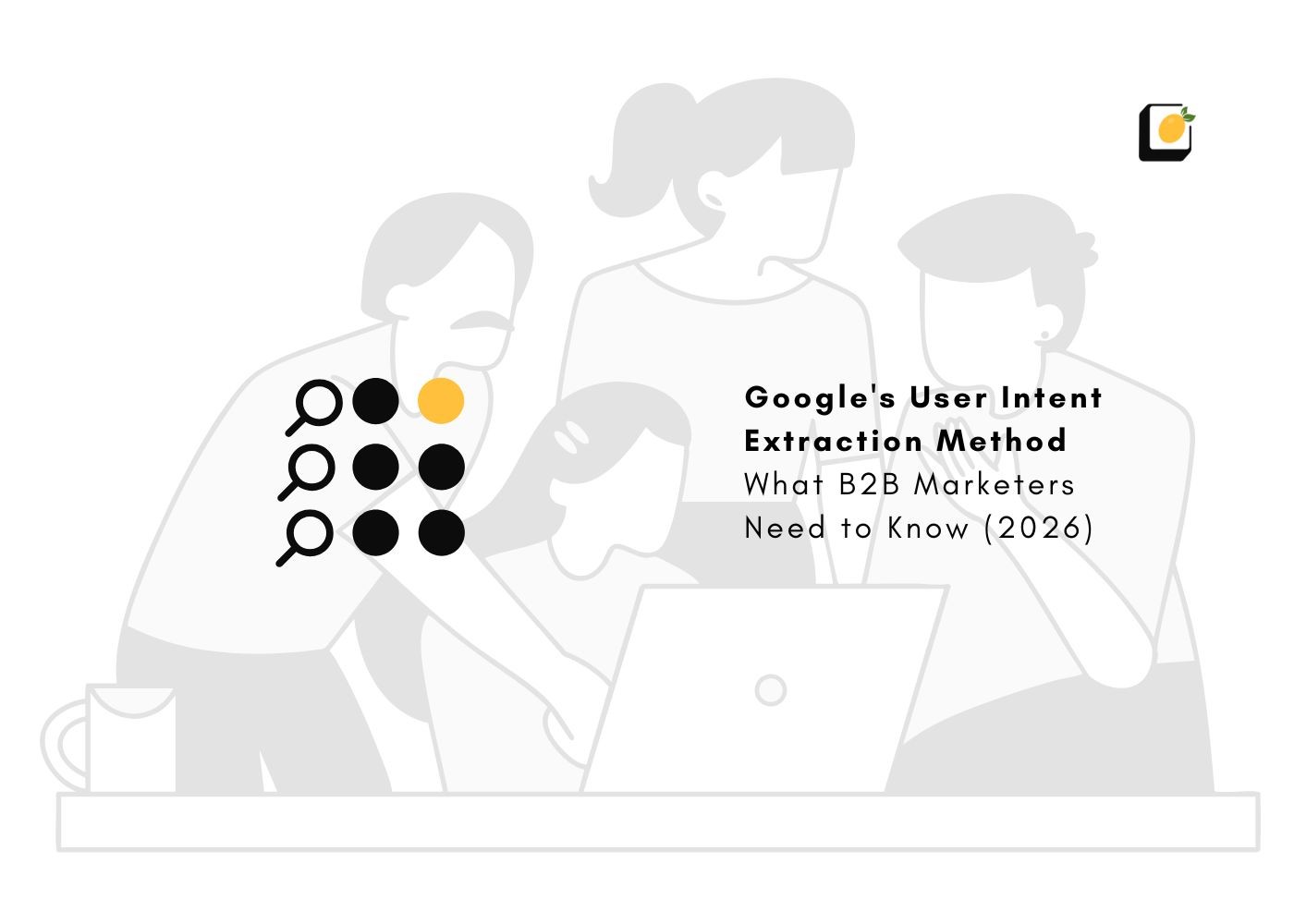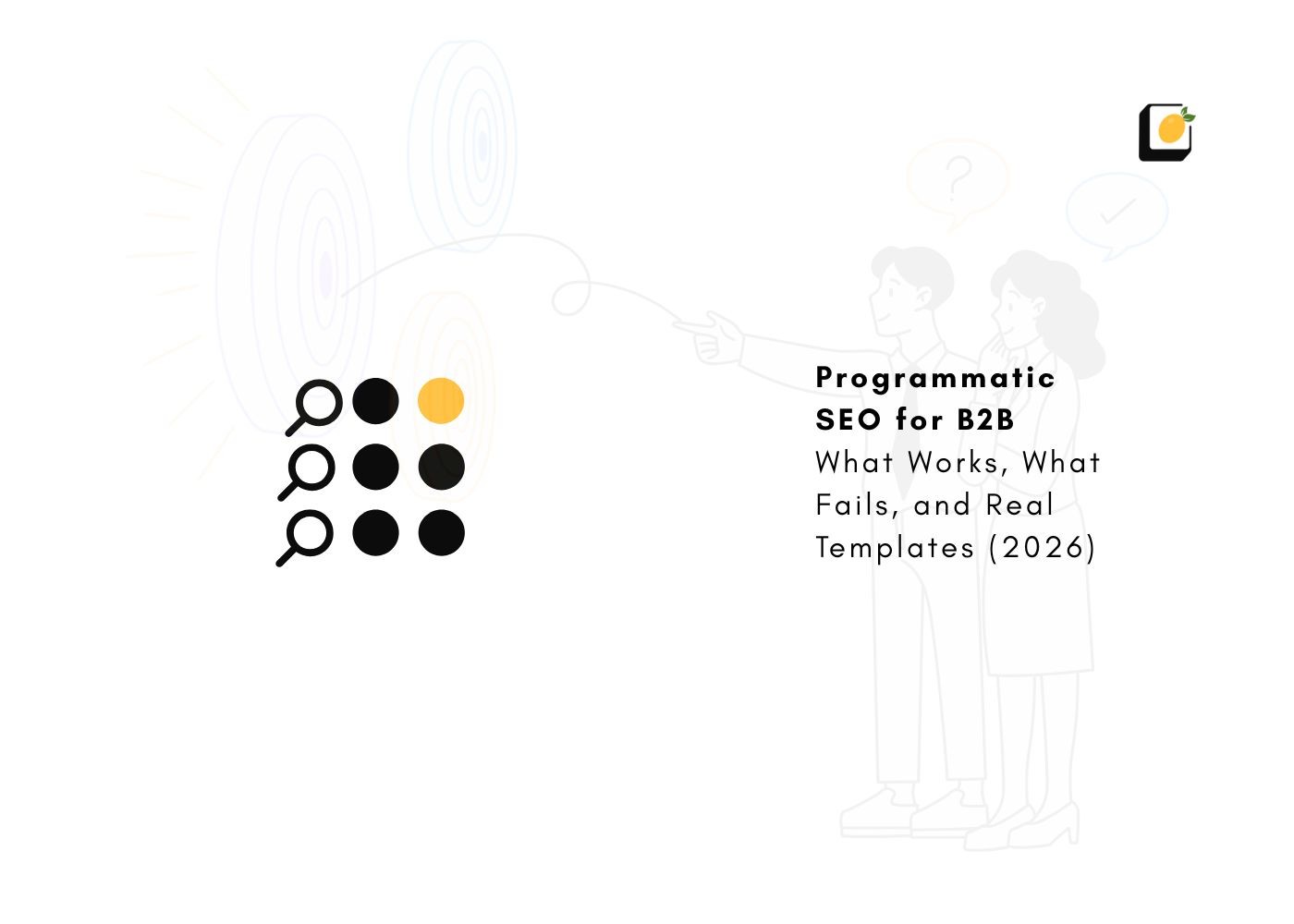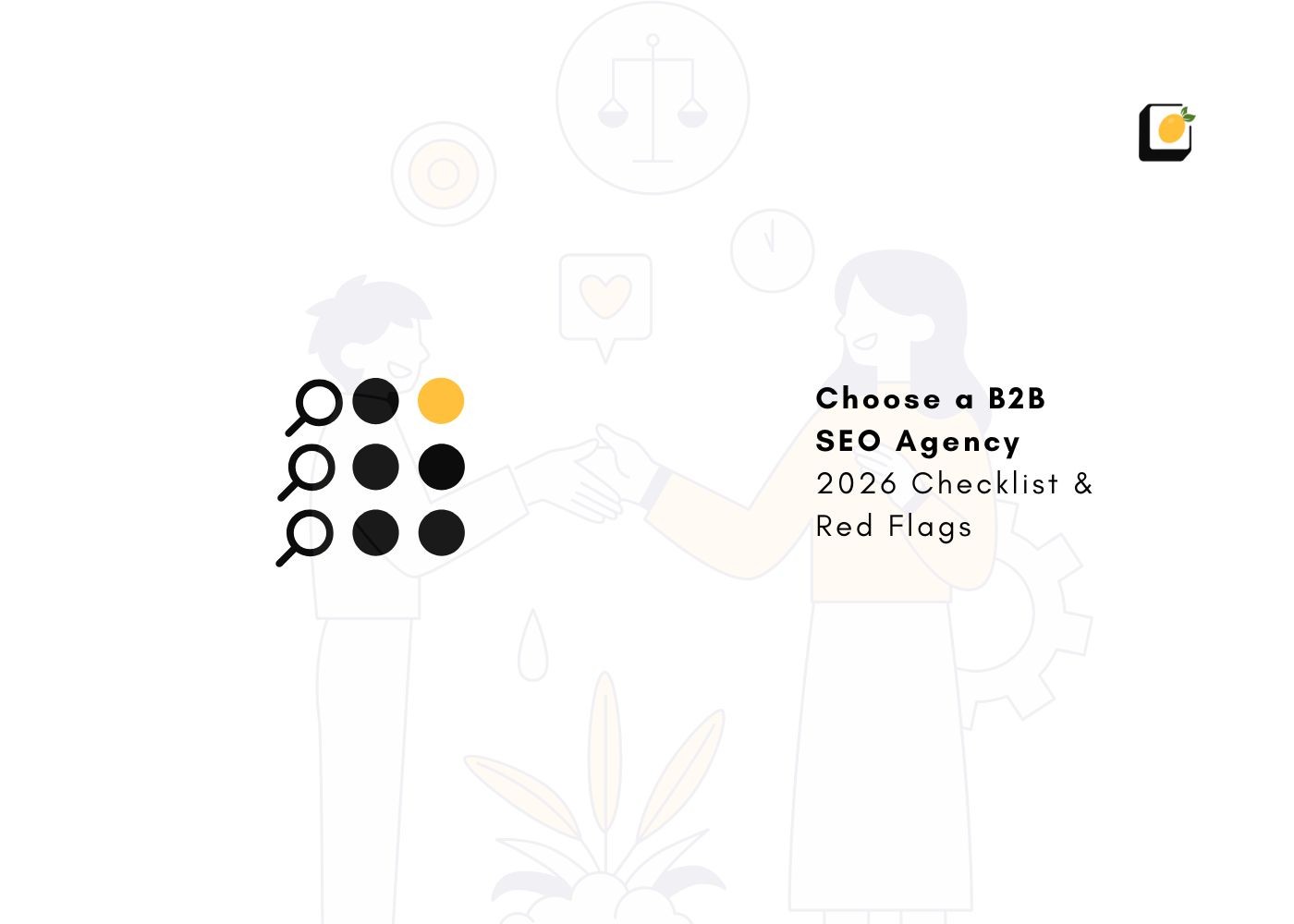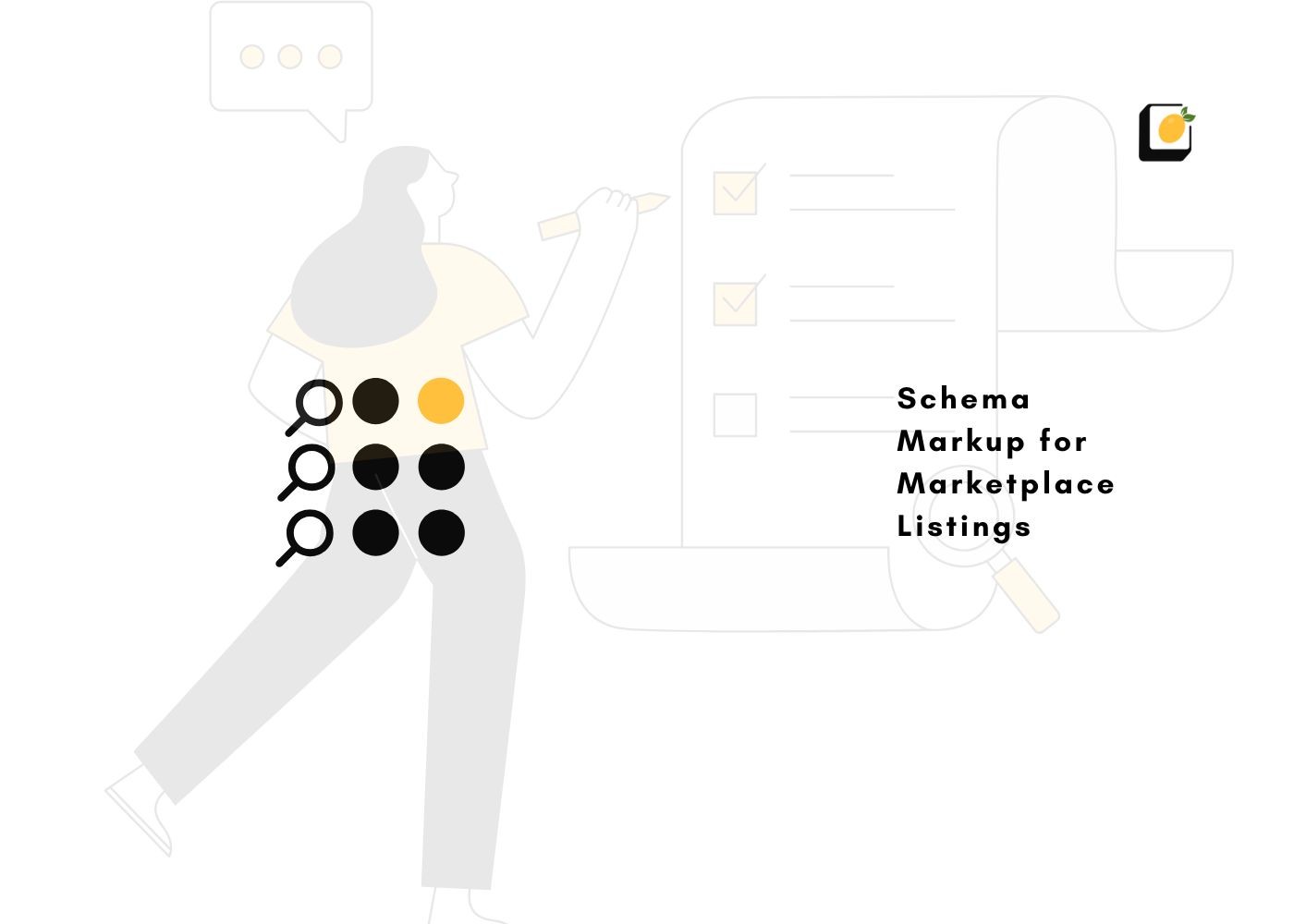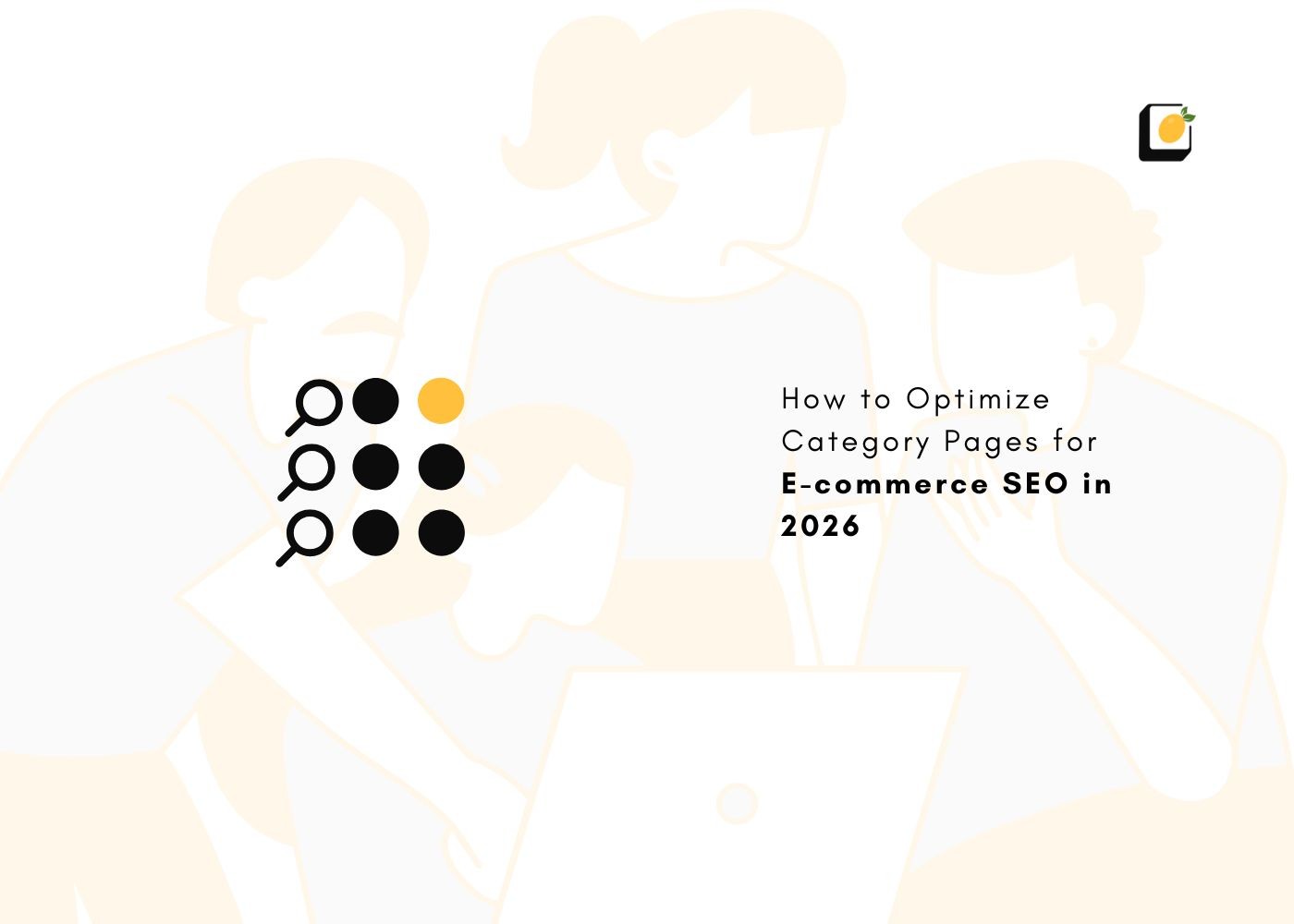AI SEO Tool Stack: The Complete Technology Suite for Modern Marketing Teams
July 27, 2025
Join 500+ brands growing with Passionfruit!
Your marketing team is drowning in spreadsheets, manually tracking keywords, and spending countless hours on repetitive SEO tasks that could be automated. Meanwhile, your competitors are leveraging AI SEO tools to scale their content, automate technical audits, and dominate search rankings with half the effort.
The reality? Modern SEO technology has evolved beyond simple keyword tracking. Today's marketing AI stack combines artificial intelligence with traditional SEO workflows to create an integrated ecosystem that transforms how teams approach search optimization. From AI-powered content creation to automated technical audits, the right tool stack can mean the difference between struggling to keep up and leading your industry.
But here's the challenge: With hundreds of AI SEO tools flooding the market, building the perfect technology suite feels overwhelming. Which tools deliver results? How do you integrate multiple platforms without creating chaos? And most importantly, how do you build a stack that grows with your team?
This comprehensive guide breaks down everything you need to know about building an AI SEO tool stack that delivers measurable results, streamlines workflows, and positions your marketing team for sustained success.
What Makes AI SEO Tools Essential for Modern Marketing
The SEO landscape has fundamentally shifted. What once required armies of analysts and weeks of manual work now happens in minutes through AI SEO tools. Marketing teams that embrace this evolution aren't just saving time, they're uncovering opportunities that manual processes simply can't detect.
How AI Transforms Traditional SEO Workflows
Traditional SEO workflows were built for a simpler time. Teams would spend days analyzing competitor content, manually auditing technical issues, and creating content briefs based on limited data. SEO AI has revolutionized this approach by introducing capabilities that seemed impossible just years ago.
AI for SEO transforms workflows in three critical ways:
Predictive Analysis: Instead of reacting to ranking changes, AI tools predict which content will perform before it's published. Tools like MarketMuse analyze hundreds of ranking factors to forecast content performance, while Surfer SEO provides optimization scores that correlate directly with ranking potential.
Scale Without Sacrifice: Where human analysts might review 10-20 competitor pages, AI tools analyze thousands of data points across entire SERPs in seconds. This comprehensive analysis reveals patterns and opportunities that manual research simply cannot capture.
Real-Time Optimization: AI SEO tools continuously monitor performance and suggest improvements. Rather than monthly audits, teams receive instant alerts about technical issues, content gaps, and optimization opportunities.
The transformation goes beyond efficiency, it's about capability. AI enables marketing teams to compete at levels previously reserved for enterprise organizations with massive resources.
Why Marketing Teams Need Integrated AI Solutions
Fragmented tools create fragmented results. The most successful marketing teams don't just use AI marketing tools, they create integrated ecosystems where data flows seamlessly between platforms.
Consider the content creation process: Traditional workflows involve separate tools for keyword research, content planning, writing, optimization, and performance tracking. Each tool switch represents potential data loss and workflow friction.
Integrated AI marketing tools solve this by creating connected workflows:
Keyword research feeds directly into content briefs
Content optimization happens in real-time during writing
Performance data automatically informs future content strategies
Technical issues trigger immediate optimization workflows
Teams using integrated solutions report faster content production and better cross-channel performance alignment. The compound effect of integration multiplies the value of individual tools.
The Cost of Manual SEO vs Automated Processes
The true cost of manual SEO extends far beyond labor hours. While AI automation tools require upfront investment, the opportunity cost of manual processes is staggering.
Time Investment Analysis:
Manual keyword research: 8-12 hours per content piece
AI-powered keyword research: 15-30 minutes per content piece
Manual technical audits: 16-24 hours monthly
Automated technical monitoring: Continuous, real-time alerts
Quality and Consistency: Manual processes suffer from human limitations and inconsistencies. Analysts have different approaches, energy levels vary throughout the day, and comprehensive analysis becomes impossible at scale. AI automation tools maintain consistent quality regardless of volume or complexity.
Competitive Response Speed: Markets move fast. Manual processes mean discovering opportunities weeks after they emerge and responding to competitive threats when it's already too late. Automated systems identify and respond to changes in real-time, maintaining a competitive advantage.
The math is compelling: Teams investing in AI SEO tools typically see a good ROI, driven primarily by increased output quality and reduced time-to-market for optimization initiatives.
Core Components of a Complete AI Marketing Tools Stack
Building an effective AI tool for the marketing stack requires understanding the fundamental components that power modern SEO success. The most successful marketing teams organize their technology around three core pillars: content intelligence, technical optimization, and competitive analysis.
Content Creation and Optimization Tools
Content remains the foundation of SEO success, but AI content creation has transformed how teams approach content development. Modern content tools don't just help you write, they help you strategize, optimize, and scale content that actually ranks.
AI Writing Assistants for SEO Content
The evolution of AI content creation tools has reached a point where they understand search intent, optimize for semantic relevance, and maintain brand voice consistency across massive content volumes.

Jasper AI leads the content creation space with its SEO-focused features. The platform analyzes top-ranking content for target keywords and suggests optimal content structures, semantic keyword variations, and content length recommendations. Teams report faster content production with Jasper's brand voice training capabilities.
Writesonic specializes in SEO-optimized content at scale. Its Content Expander feature takes existing content and creates comprehensive, search-optimized versions that maintain topical authority while expanding keyword coverage. The platform's integration with SEO analysis tools ensures content meets optimization requirements before publication.
Koala AI focuses specifically on SEO-rich blog content with real-time data integration. Unlike generic writing tools, Koala understands search ranking factors and creates content that naturally incorporates optimization elements without sacrificing readability.
Content Optimization Platforms
Raw content creation is only the beginning. AI content creation platforms that specialize in optimization ensure every piece of content achieves its ranking potential.

Surfer SEO remains the gold standard for content optimization. The platform analyzes hundreds of ranking factors from top-performing pages and provides real-time optimization suggestions during the writing process. Content optimized with Surfer typically sees higher ranking potential compared to non-optimized content.
Clearscope takes a semantic approach to optimization, focusing on topical authority and search intent matching. The platform identifies content gaps and suggests semantic keywords that enhance content comprehensiveness without keyword stuffing.
Frase combines content optimization with question research, identifying the queries your target audience asks and structuring content to answer them comprehensively. This approach aligns perfectly with Google's focus on helpful, people-first content.
Topic Research and Keyword Planning Tools
Strategic content planning separates successful SEO programs from random content creation. Modern AI tools for content creation excel at identifying high-opportunity topics before competitors discover them.

MarketMuse revolutionizes topic research by analyzing entire content ecosystems. Instead of focusing on individual keywords, MarketMuse identifies topic clusters that build topical authority and suggests content strategies that establish domain expertise.

SEMrush provides comprehensive keyword research with competitive intelligence integration. The platform's Topic Research tool identifies trending topics within your niche and suggests content angles that competitors haven't explored.

Ahrefs excels at identifying content gaps through its Content Gap tool, which reveals keywords your competitors rank for but you don't. This competitive intelligence drives strategic content planning that captures market share.
Technical SEO Analysis and Monitoring
Technical SEO forms the foundation that supports all other optimization efforts. SEO analysis tools powered by AI can identify and prioritize technical issues that impact search performance.
Site Audit and Health Monitoring
Modern SEO analysis goes beyond identifying problems, AI-powered tools predict which technical issues will impact rankings and prioritize fixes based on potential impact.
SEMrush Site Audit provides a comprehensive technical analysis with AI-powered prioritization. The platform identifies over 130 technical issues and ranks them by potential impact on search performance. Teams using SEMrush's automated auditing report 40% faster technical issue resolution.
Screaming Frog SEO Spider remains essential for deep technical analysis. While not AI-native, its integration with AI analysis tools creates powerful workflows for identifying and resolving complex technical issues at scale.
Sitechecker specializes in continuous monitoring, alerting teams to technical issues as they occur rather than during monthly audits. This proactive approach prevents technical problems from impacting search performance.
Page Speed and Core Web Vitals Tracking
Page speed directly impacts both user experience and search rankings. AI SEO tools now provide predictive insights about performance optimization and automated solutions for common speed issues.
NitroPack uses AI to optimize site speed automatically. The platform applies advanced caching, image optimization, and code optimization techniques that typically require developer intervention. Sites using NitroPack see average speed improvements.
PageSpeed Insights provides the baseline data, but modern teams combine this with AI-powered optimization tools that automatically implement recommended fixes.
GTmetrix offers detailed performance analysis with optimization recommendations. When integrated with automated optimization tools, it creates feedback loops that continuously improve site performance.
Schema Markup and Structured Data Tools
Structured data helps search engines understand content context, and AI tools now make schema implementation accessible to non-technical teams.
Alli AI provides automated schema markup generation based on content analysis. The platform identifies schema opportunities and implements markup without requiring technical expertise.
Schema.org validation tools ensure markup accuracy, while AI-powered platforms like Alli AI suggest schema enhancements that improve rich snippet eligibility.
Keyword Research and Competitive Intelligence
Understanding the competitive landscape and identifying keyword opportunities drives strategic SEO decision-making. Best SEO tools in this category combine comprehensive data with AI-powered insights that reveal opportunities manual analysis would miss.
AI-Powered Keyword Discovery
Modern keyword research goes beyond search volume and competition scores. AI-powered tools identify keyword opportunities based on user intent, content gaps, and emerging trends.
SEMrush leads keyword discovery with its AI-powered suggestions that identify related keywords, question-based queries, and semantic variations. The platform's Keyword Magic Tool generates thousands of keyword ideas from a single seed keyword, organized by intent and opportunity.
Ahrefs excels at identifying low-competition keywords through its Keyword Difficulty score, which uses machine learning to predict ranking difficulty more accurately than traditional metrics.
Quattr's Keyword Research Tool uses deep learning to uncover historical keyword performance and classify keywords by specific search intents, enabling more strategic content planning.
Competitor Analysis Platforms
Understanding competitor strategies enables teams to identify gaps and opportunities in their SEO approaches.
SEMrush provides comprehensive competitive analysis, revealing competitor keyword strategies, content gaps, and backlink opportunities. The platform's Position Tracking tool monitors competitor ranking changes and identifies when competitors gain or lose visibility for target keywords.
SpyFu specializes in competitor keyword analysis, showing the exact keywords competitors have successfully ranked for over time. This historical data reveals long-term content strategies and identifies proven keyword opportunities.
SimilarWeb offers broader competitive intelligence, including traffic sources, audience overlap, and market share analysis that informs overall SEO strategy.
Search Intent Classification Tools
Understanding search intent ensures content matches what users want, improving both rankings and user satisfaction.
MarketMuse analyzes search intent at scale, categorizing keywords by user intent and suggesting content approaches that match searcher expectations.
Surfer SEO incorporates intent analysis into its content optimization recommendations, ensuring content structure and depth align with what top-ranking pages provide for similar queries.
Modern best SEO tools recognize that successful optimization requires understanding not just what people search for, but why they search for it.
Best AI SEO Tools for Different Marketing Functions
Different marketing functions require specialized AI SEO tools that address specific workflow challenges. The most effective technology stacks match tool capabilities to team responsibilities, creating optimized workflows for content creation, technical optimization, and link building.
Content Marketing and Creation Tools
Content marketing teams need AI tools for content creation that handle the entire content lifecycle, from ideation through optimization and performance tracking.
Jasper AI for SEO Content
Jasper AI has evolved into a comprehensive content creation platform specifically designed for SEO success. The platform's Brand Voice feature learns your organization's tone and style, ensuring consistent content across team members and content types.
Jasper's SEO Mode analyzes top-ranking content for target keywords and suggests optimal content structure, semantic keywords, and content depth. Teams using Jasper report 3x faster content production while maintaining quality standards that drive search rankings.
The platform's integration with SEO analysis tools creates seamless workflows where keyword research automatically informs content creation, and optimization suggestions appear in real-time during the writing process.
Surfer SEO for Content Optimization
Surfer SEO transforms content optimization from guesswork into data-driven science. The platform analyzes 500+ ranking factors from top-performing pages and provides specific recommendations for content length, keyword usage, semantic terms, and content structure.
Surfer's Content Editor provides real-time optimization scoring as you write, ensuring content meets optimization requirements before publication. Content optimized with Surfer typically achieves 20-30% higher ranking potential compared to non-optimized content.
The platform's SERP Analyzer reveals exactly what makes top-ranking content successful, enabling teams to create comprehensive content that naturally outperforms competitors.
Clearscope for Content Briefs
Clearscope specializes in creating data-driven content briefs that guide writers toward SEO success. The platform analyzes search intent and identifies the topics, questions, and semantic keywords that comprehensive content should address.
Clearscope's optimization recommendations focus on topical authority and user intent matching rather than keyword density, aligning with Google's emphasis on helpful, comprehensive content.
Teams using Clearscope report 40% improvement in content ranking performance and significant reductions in revision cycles, as content briefs provide clear optimization targets from the start.
Technical SEO and Website Optimization
Technical SEO requires SEO optimization tools that can identify, prioritize, and often resolve technical issues automatically.
Screaming Frog with AI Insights
Screaming Frog SEO Spider remains the foundation of technical SEO analysis, but its integration with AI-powered analysis tools creates powerful workflows for identifying and resolving complex technical issues.
The platform's comprehensive crawling capabilities identify technical issues across entire websites, while AI-powered prioritization tools rank issues by potential impact on search performance.
Modern implementations combine Screaming Frog's data with automated fix suggestions and implementation tools, creating technical SEO workflows that require minimal manual intervention.
SEMrush Site Audit Tools
SEMrush provides comprehensive site auditing with AI-powered issue prioritization. The platform identifies over 130 technical issues and ranks them by potential impact on search performance, enabling teams to focus on fixes that deliver the greatest SEO benefit.
SEMrush's automated auditing runs continuously, alerting teams to new technical issues as they occur rather than during monthly audits. This proactive approach prevents technical problems from impacting search performance.
The platform's integration with optimization tools creates workflows where technical issues are identified, prioritized, and often resolved automatically without requiring developer intervention.
Ahrefs Technical SEO Suite
Ahrefs combines technical analysis with competitive intelligence, showing how technical issues impact ranking performance compared to competitors.
The platform's Site Audit tool identifies technical problems while its competitive analysis shows how resolving these issues could improve competitive positioning. This combination of technical analysis and competitive context helps teams prioritize technical improvements that deliver the greatest strategic advantage.
Link Building and Outreach Automation
Link building benefits significantly from AI-powered SEO tools that automate prospect identification, outreach personalization, and relationship management.
Pitchbox for Outreach Campaigns
Pitchbox revolutionizes link building through AI-powered prospect identification and outreach automation. The platform identifies high-quality link opportunities based on relevance, authority, and likelihood of response.
Pitchbox's AI-powered personalization creates custom outreach messages that achieve significantly higher response rates than template-based approaches. The platform learns from successful outreach campaigns and continuously improves messaging effectiveness.
Teams using Pitchbox report 50% higher outreach success rates and a 70% reduction in time spent on manual outreach tasks.
HARO AI for PR Opportunities
HARO (Help a Reporter Out) opportunities provide valuable backlinks and brand exposure, but identifying and responding to relevant opportunities requires a significant time investment.
AI-powered HARO tools automatically identify relevant opportunities based on your expertise areas and draft response templates that increase acceptance rates. This automation transforms HARO from a time-intensive activity into a scalable link-building strategy.
BuzzStream for Relationship Management
BuzzStream provides CRM functionality specifically designed for link building and digital PR. The platform tracks outreach campaigns, manages relationships, and identifies opportunities for ongoing collaboration.
BuzzStream's integration with AI-powered research tools automatically identifies contact information and relationship opportunities, while its automated follow-up sequences maintain relationships without constant manual intervention.
The platform's reporting capabilities demonstrate link-building ROI and identify the most effective outreach strategies for continuous improvement.
Free SEO Tools vs Premium AI Solutions
Understanding when free SEO tools meet your needs versus when premium solutions provide essential capabilities helps marketing teams optimize their tool budgets while maintaining competitive performance.
Essential Free Tools Every Team Needs
Free SEO tools provide foundational capabilities that every marketing team should leverage before investing in premium solutions.
Google Search Console Integration
Google Search Console remains the most important free SEO tool available. It provides direct insights from Google about your site's search performance, technical issues, and indexing status.
The platform's Performance reports reveal which queries drive traffic, which pages perform best, and how search visibility changes over time. This data forms the foundation for strategic SEO decision-making regardless of what other tools you use.
Search Console's Coverage reports identify indexing issues that prevent pages from appearing in search results, while the Core Web Vitals report highlights user experience issues that impact rankings.
Modern SEO strategies integrate Search Console data with other tools to create comprehensive performance dashboards, but the platform's free insights remain irreplaceable.
Google Analytics 4 with AI Insights
Google Analytics 4 provides essential user behavior data that informs SEO strategy. The platform's AI-powered insights identify trends, anomalies, and opportunities that manual analysis might miss.
GA4's enhanced measurement capabilities automatically track important SEO metrics like scroll depth, file downloads, and video engagement. These engagement signals increasingly influence search rankings as Google focuses on user experience.
The platform's conversion tracking capabilities demonstrate SEO's impact on business outcomes, providing the data necessary to secure continued investment in SEO initiatives.
Ubersuggest Free Features
Ubersuggest provides limited but valuable keyword research capabilities in its free tier. Teams can identify keyword opportunities, track basic rankings, and perform limited competitive analysis without paid subscriptions.
While the free version has significant limitations compared to premium tools, it provides enough functionality for small teams to begin strategic keyword research and competitive analysis.
When to Upgrade to Premium SEO Software
SEO software investments become necessary when free tools no longer meet your team's scale, sophistication, or competitive requirements.
Team Collaboration Requirements
Premium SEO software provides collaboration features that become essential as teams grow. Multiple users, role-based permissions, shared dashboards, and collaborative workflows require paid solutions.
Marketing automation capabilities enable teams to create scalable processes that maintain quality as content volume increases. Automated workflows, approval processes, and performance tracking become critical for team productivity.
Advanced Reporting and Analytics
Premium tools provide advanced reporting capabilities that demonstrate SEO's business impact. Custom dashboards, automated reports, and cross-platform data integration create the insights necessary for strategic decision-making.
AI digital marketing platforms combine data from multiple sources to create comprehensive performance views that inform resource allocation and strategic planning.
API Access and Integrations
SEO platforms with API access enable custom integrations that connect SEO data with other business systems. This connectivity creates automated workflows that scale SEO processes without proportional increases in manual work.
Premium tools often provide integrations with content management systems, marketing automation platforms, and business intelligence tools that create seamless workflows across marketing functions.
Building Your Digital Marketing Tools Infrastructure
Creating an effective digital marketing tools infrastructure requires strategic planning that considers current needs, growth projections, and integration requirements.
Integration Requirements for Marketing Teams
AI tools for digital marketing achieve maximum value when they work together as an integrated ecosystem rather than isolated solutions.
CRM and Email Marketing Connections
Modern marketing automation requires seamless data flow between SEO tools and customer relationship management systems. When SEO tools identify high-value prospects through competitive analysis or keyword research, this information should automatically inform email marketing and sales outreach.
Integration between SEO tools and CRM systems enables marketing teams to track the complete customer journey from initial search query through conversion and retention. This comprehensive view demonstrates SEO's contribution to business outcomes and informs strategic resource allocation.
Social Media Management Integration
AI tools for digital marketing increasingly connect SEO and social media strategies. Content that performs well in search often provides excellent social media material, while social engagement signals influence search rankings.
Integrated platforms automatically adapt SEO-optimized content for social media distribution, ensuring consistent messaging across channels while maximizing content value. Social media insights inform SEO content strategies by revealing audience interests and engagement patterns.
Analytics and Reporting Consolidation
Digital marketing tools generate vast amounts of data across multiple platforms. Consolidated reporting creates actionable insights from this data while reducing the time spent switching between different analytics interfaces.
Modern marketing teams use data integration platforms that combine SEO performance data with social media metrics, email marketing results, and conversion tracking to create comprehensive performance dashboards that inform strategic decision-making.
Workflow Automation with AI Marketing Tools
Marketing automation powered by AI transforms repetitive tasks into scalable processes that maintain quality while reducing manual work requirements.
Content Calendar Automation
AI marketing tools can automatically populate content calendars based on keyword research, competitive analysis, and performance data. These systems identify content opportunities, suggest publication timing, and ensure consistent content production without constant manual planning.
Automated content calendars adapt to performance data, prioritizing content types and topics that drive the best results while identifying underperforming content areas that need strategic adjustment.
Rank Tracking and Alert Systems
Modern SEO marketing tools provide automated monitoring that alerts teams to ranking changes, technical issues, and competitive threats in real-time. These systems enable proactive responses to search performance changes rather than reactive fixes after problems impact business results.
Automated alert systems can trigger specific workflows based on performance changes, such as increasing content promotion when rankings improve or investigating technical issues when rankings decline.
Report Generation and Distribution
Marketing AI tools automate report generation and distribution, ensuring stakeholders receive consistent, timely updates on SEO performance without requiring manual report creation.
Automated reporting systems adapt to audience needs, providing executive summaries for leadership while offering detailed tactical insights for marketing teams. This automated communication maintains stakeholder engagement and demonstrates ongoing SEO value.
SEO Marketing Tools Implementation Strategy
Successful SEO marketing tools implementation requires strategic planning that considers team capabilities, workflow integration, and performance measurement.
Team Training and Onboarding Process
Marketing AI tools provide powerful capabilities, but teams need proper training to achieve their potential value.
Tool-Specific Training Programs
Each AI SEO tool has unique capabilities and optimal usage patterns. Comprehensive training programs ensure team members understand not just how to use tools, but when and why to use specific features.
Effective training programs combine initial onboarding with ongoing education as tools evolve and add new capabilities. The rapid pace of AI development means tools regularly add features that can significantly impact team productivity.
Best Practice Documentation
Marketing automation tools require documented workflows that ensure consistent usage across team members. Best practice documentation prevents tool misuse and ensures teams achieve optimal results from their technology investments.
Documentation should include not just technical instructions, but strategic guidance about when to use specific tools and how to interpret results in the context of broader SEO strategies.
Performance Measurement Setup
SEO platforms provide extensive data, but teams need clear metrics and measurement frameworks to evaluate tool effectiveness and demonstrate return on investment.
Performance measurement should track both efficiency gains (time saved, tasks automated) and effectiveness improvements (better rankings, increased traffic, higher conversion rates) to provide a comprehensive value assessment.
Budget Planning for AI SEO Platforms
SEO platforms represent significant investments that require careful planning and ongoing evaluation to ensure optimal resource allocation.
Cost-Benefit Analysis Framework
Marketing technology investments should be evaluated based on their contribution to business outcomes rather than just feature lists or tool capabilities.
Effective cost-benefit analysis considers both direct costs (software licensing, training, implementation) and indirect benefits (improved productivity, faster time-to-market, competitive advantages) to create realistic ROI projections.
ROI Measurement Strategies
AI digital marketing tools should demonstrate measurable returns through improved performance metrics, increased efficiency, and competitive advantages.
ROI measurement should track leading indicators (content production speed, technical issue resolution time) and lagging indicators (ranking improvements, traffic increases, conversion rate improvements) to provide a comprehensive value assessment.
Scaling Considerations
Digital marketing AI tools must accommodate team growth and increasing complexity without requiring complete platform changes that disrupt established workflows.
Scaling considerations include user licensing models, data storage limits, integration capabilities, and advanced feature availability as teams grow and requirements evolve.
Measuring Success with AI Digital Marketing Tools
AI digital marketing success requires comprehensive measurement frameworks that track both tool performance and business impact.
Key Performance Indicators for AI SEO
Marketing tools should be evaluated based on their contribution to strategic SEO objectives rather than just operational efficiency improvements.
Organic Traffic Growth Metrics
AI SEO tools should demonstrate their impact through measurable organic traffic improvements that can be attributed to specific tool usage and optimization activities.
Traffic growth measurement should consider not just volume increases, but quality improvements reflected in engagement metrics, conversion rates, and customer lifetime value from organic traffic.
Content Performance Analytics
AI content tools should improve both content creation efficiency and content performance outcomes. Measurement frameworks should track content production metrics alongside content ranking and engagement performance.
Content performance analysis should identify which AI-assisted content performs best, enabling teams to refine their AI tool usage for optimal results.
Technical SEO Health Scores
Marketing technology platforms should demonstrate their impact on technical SEO performance through measurable improvements in site health, page speed, and technical optimization scores.
Technical performance measurement should track both problem identification speed and resolution effectiveness to demonstrate comprehensive technical SEO value.
Advanced Analytics and Reporting
Digital marketing AI tools generate extensive data that requires sophisticated analysis to extract actionable insights.
Custom Dashboard Creation
AI marketing automation platforms should enable custom dashboard creation that provides relevant insights for different team roles and strategic objectives.
Custom dashboards should combine data from multiple tools to create comprehensive performance views that inform strategic decision-making without requiring manual data compilation.
Cross-Platform Data Integration
Marketing tools achieve maximum value when their data integrates with other business systems to create comprehensive performance views that demonstrate marketing's contribution to business outcomes.
Cross-platform integration should provide both operational insights (campaign performance, efficiency metrics) and strategic insights (customer journey analysis, lifetime value attribution) that inform resource allocation decisions.
Automated Performance Reports
AI digital marketing tools should automate routine reporting while enabling ad-hoc analysis for strategic planning and problem-solving.
Automated reporting should adapt to audience needs and provide both high-level summaries for executives and detailed tactical insights for marketing teams without requiring manual report creation.
Common Implementation Challenges and Solutions
AI for digital marketing implementation often encounters predictable challenges that can be addressed through proper planning and a strategic approach.
Data Integration and Management Issues
Marketing technology platforms generate vast amounts of data that must be integrated and managed effectively to provide actionable insights.
API Limitations and Workarounds
AI content tools and other marketing platforms often have API limitations that restrict data access or integration capabilities. Understanding these limitations during tool selection prevents implementation challenges later.
Workarounds for API limitations might include data export/import workflows, third-party integration platforms, or custom development solutions that bridge platform gaps.
Data Quality and Consistency
Digital marketing tools require consistent, high-quality data to provide accurate insights and recommendations. Data quality issues can significantly impact tool effectiveness and decision-making quality.
Data quality management should include regular audits, standardized data entry processes, and automated validation rules that prevent data quality problems from affecting analysis and insights.
Cross-Team Collaboration Barriers
AI marketing tools often require collaboration across teams with different priorities, technical capabilities, and communication styles. Addressing collaboration barriers early prevents implementation delays and user adoption issues.
Collaboration solutions include clear role definitions, shared training programs, and communication protocols that ensure all team members understand their responsibilities and how their work contributes to overall success.
Tool Selection and Vendor Management
AI content tools and other marketing platforms require careful evaluation and ongoing vendor relationship management to ensure continued value delivery.
Evaluation Criteria Framework
Marketing automation tools should be evaluated based on strategic fit, technical capabilities, integration requirements, and long-term viability rather than just feature lists or pricing.
Evaluation frameworks should include proof-of-concept testing, reference customer interviews, and technical integration assessments that provide realistic expectations about tool performance and implementation requirements.
Contract Negotiation Strategies
SEO platforms and other enterprise marketing tools offer negotiation opportunities that can significantly impact the total cost of ownership and implementation success.
Negotiation strategies should consider not just pricing, but also implementation support, training resources, integration assistance, and performance guarantees that ensure successful tool adoption and value realization.
Vendor Relationship Management
Digital marketing AI tools evolve rapidly, requiring ongoing vendor relationships that ensure teams stay current with new capabilities and best practices.
Vendor relationship management should include regular check-ins, product roadmap discussions, and feedback channels that ensure tools continue meeting team needs as requirements evolve.
Future-Proofing Your AI Marketing Automation Stack
AI marketing automation evolves rapidly, requiring strategic approaches that ensure tool stacks remain effective as technologies and requirements change.
Staying Current with Tool Updates and Features
Marketing AI tools regularly add new capabilities that can significantly impact team productivity and strategic capabilities.
Regular Tool Audits and Assessments
AI SEO tools should be regularly audited to ensure teams are utilizing available capabilities effectively and identify opportunities for improved usage or new feature adoption.
Tool audits should evaluate both technical performance (speed, accuracy, integration effectiveness) and strategic value (contribution to business objectives, competitive advantages) to inform continued investment decisions.
Beta Testing New Features
AI marketing tools often provide beta access to new features that can provide competitive advantages for early adopters willing to test and provide feedback.
Beta testing programs should include evaluation criteria, feedback processes, and rollback plans that enable teams to safely evaluate new capabilities without disrupting established workflows.
Community and Support Resources
Marketing automation platforms typically provide user communities, training resources, and support channels that help teams maximize tool value and stay current with best practices.
Engaging with vendor communities and support resources provides ongoing education opportunities and peer learning that improve tool usage effectiveness over time.
Scaling Your SEO Tool Stack as Teams Grow
SEO marketing tools must accommodate team growth and increasing complexity without requiring complete platform changes that disrupt established workflows.
User Management and Permissions
AI digital marketing platforms require user management capabilities that provide appropriate access levels while maintaining data security and workflow integrity.
User management should include role-based permissions, workflow approval processes, and audit trails that ensure tools scale effectively as teams grow and responsibilities evolve.
Additional Licensing Considerations
Marketing technology licensing models should accommodate growth without creating budget surprises or functionality limitations that constrain team effectiveness.
Licensing planning should consider not just current user counts, but projected growth, seasonal usage variations, and feature requirements that might change as teams develop expertise and strategic sophistication.
Training New Team Members
AI tools for digital marketing require ongoing training programs that efficiently onboard new team members while maintaining productivity and quality standards.
Training programs should include both technical tool usage and strategic context that helps new team members understand not just how to use tools, but when and why specific approaches deliver optimal results.
Ready to transform your marketing operations? Start by auditing your current digital marketing tools stack, identifying the biggest inefficiencies, and implementing one AI solution at a time. The compound effects will surprise you, and your competitors will wonder how you're moving so fast while maintaining such high quality standards.
Contact Passionfruit today, your one-stop growth engine.
FAQ
What are the best AI SEO tools for marketing teams?
The best AI SEO tools for marketing teams include Semrush for comprehensive keyword research and competitive analysis, Ahrefs for backlink analysis and content gap identification, Surfer SEO for content optimization, and Jasper AI for AI-powered content creation. The optimal combination depends on your team size, budget, and specific requirements. For comprehensive strategies, consider reading our ultimate guide to keyword research for AI-optimized approaches.
How much do AI SEO tools cost for businesses?
AI SEO tools costs vary significantly based on functionality and team size. Basic plans typically start at $139.95 per month for tools like Semrush or Ahrefs, while comprehensive AI marketing automation platforms can range from $500-2000+ monthly. Free tools like Google Search Console and Analytics provide substantial value for smaller teams. Consider starting with free SEO AI tools, free options, and upgrading based on specific needs and ROI demonstration.
Which AI tools help with content optimization?
The most effective AI tools for content creation include Surfer SEO for real-time optimization guidance, Clearscope for comprehensive content briefs, and Frase for SERP analysis and content scoring. These platforms analyze top-ranking content to provide specific recommendations about keyword usage, content structure, and topic coverage. For advanced content strategies, explore how to write SEO-optimized content with Claude 4 for cutting-edge AI writing techniques.
How do AI SEO tools improve marketing results?
AI for SEO improves marketing results by automating time-intensive tasks, providing data-driven optimization recommendations, and identifying opportunities that manual analysis might miss. Teams typically see 40-60% time savings on routine SEO tasks, enabling focus on strategy and creative work. Performance improvements include better keyword targeting, optimized content structure, and faster identification of technical issues. The compound effect often results in 25-50% improvements in organic traffic within 6-12 months.
What's the difference between free and paid SEO tools?
Free SEO tools like Google Search Console and Analytics provide essential functionality for basic SEO monitoring and analysis. Paid SEO software offers advanced features including comprehensive competitor analysis, automated reporting, API access, and sophisticated analytics. The primary differences include data depth, automation capabilities, team collaboration features, and integration possibilities. Most successful teams start with free tools and upgrade specific functions based on growth needs and ROI requirements.


